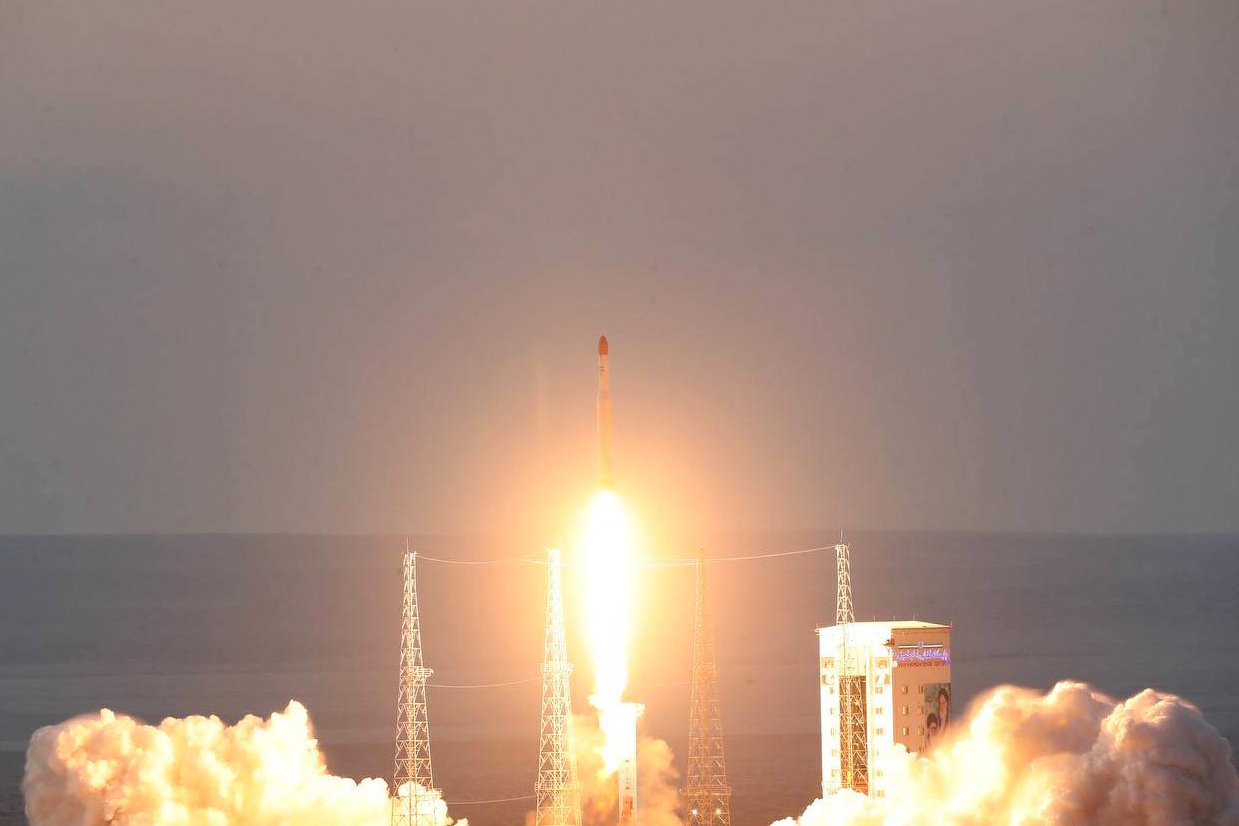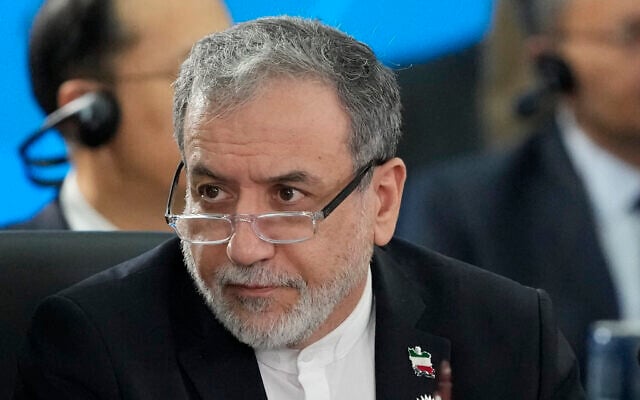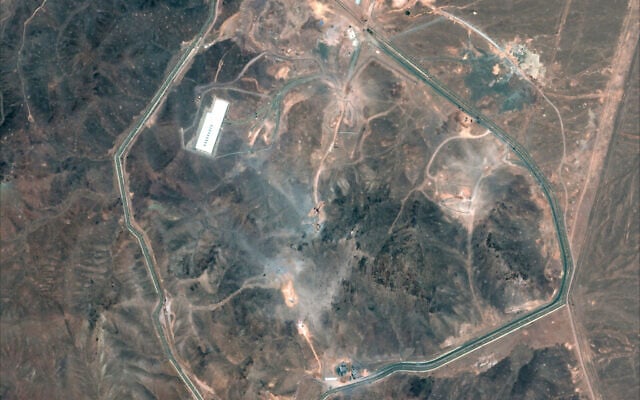



TEHRAN, Iran — Iran tested one of its satellite-carrying rockets with a suborbital flight on Monday, state media reported, the first such test since a ceasefire was reached after a 12-day war between Israel and Iran in June, which also saw the United States strike nuclear-related facilities in the Islamic Republic.
The test was the latest for a program that the West says improves Tehran’s ballistic missiles, which, along with Iran’s nuclear development program, was the focus of Israel’s strikes.
A report by the official IRNA news agency said the Ghased satellite carrier test aimed at “assessing some emerging new technologies in the country’s space industry.” It said the test results will help improve the function of Iran’s satellites and space systems.
The report did not provide any further details on the test flight or from where the rocket was launched.
From time to time, Iran launches satellite carriers to send its satellites to space. Last September, Iran launched a satellite into space with a rocket built by the country’s paramilitary Revolutionary Guard.
The Ghased, a solid and fluid fuel rocket, was first inaugurated in 2020 by the Guard when it put a military satellite in orbit.
Israel launched surprise strikes on Iran’s nuclear and ballistic missile facilities on June 13, starting a war that the United States later joined.
Israel said its sweeping assault — which began 61 days after US President Donald Trump set a 60-day deadline for a nuclear deal, and targeted Iran’s top military leaders, nuclear scientists, uranium enrichment sites, and ballistic missile program — was necessary to prevent the Islamic Republic from realizing its avowed plan to destroy the Jewish state.
Iran has consistently denied seeking to acquire nuclear weapons. However, it enriched uranium to levels that have no peaceful application, obstructed international inspectors from checking its nuclear facilities, and expanded its ballistic missile capabilities. Israel said Iran had recently taken steps toward nuclear weaponization.
Iran has no plans to abandon its nuclear program, including uranium enrichment, despite “severe” damage to its facilities from the US strikes last month, Foreign Minister Abbas Araghchi said Monday.
For now, enrichment “is stopped because, yes, damages are serious and severe,” Araghchi told Fox News’ “Special Report with Bret Baier.”
“But obviously we cannot give up enrichment because it is an achievement of our own scientists,” he continued, calling it a source of “national pride.”
He stressed that any future nuclear deal would have to contain the right to enrichment.
When asked whether any enriched uranium had been saved from the strikes, Araghchi said he had “no detailed information,” but that Iran’s Atomic Energy Organization is “trying to evaluate what has exactly happened to our nuclear material, to our enriched material.”
Washington bombed three nuclear facilities in Iran on June 22 to support Israel’s military offensive, including the Fordo underground uranium enrichment site located south of Tehran.
US President Donald Trump has repeatedly called the strikes a success that “completely destroyed” the sites, lashing out at media reports citing intelligence findings of more conservative assessments.
Araghchi, while saying there was no military solution to the dispute over Iran’s program, told Fox News that “yes, facilities have been destroyed. They are severely destroyed.”
“But the technology is there, our nuclear program, our enrichment program, is not something imported from outside that can be destroyed by bombings,” he said.
Trump welcomed Araghchi’s comments in a post on his Truth Social platform on Monday.
“Just like I said, and we will do it again, if necessary!” posted the US president.
Araghchi’s remarks come as Tehran is set to hold new talks on its nuclear program with Germany, France, and the United Kingdom on Friday in Istanbul.
Regarding negotiations with the United States to de-escalate regional tension, Araghchi said “we are open to talks” but “not direct for the time being.”
“We are ready to do any confidence-building measure needed to prove that Iran’s nuclear program is peaceful” in exchange for lifted US sanctions, he added.
The foreign minister also confirmed that Iran would continue to develop and manufacture missiles.
Despite multiple barrages of missiles launched at Israel and waves of Israeli attacks on its bases and launchers, Araghchi said, “We still have a good number of missiles to defend ourselves.”
Baier also asked about the health of Iran’s Supreme Leader, Ayatollah Ali Khamenei, who has rarely been seen since the start of Israel’s attack.
“I met him today, he is in a very good shape and in a very good health,” Araghchi said.
Iranian authorities said more than 1,000 people were killed in Iran during the war.
Iran retaliated against Israel’s strikes by launching over 500 ballistic missiles and around 1,100 drones at Israel. The attacks killed 29 people and wounded over 3,000 in Israel, according to health officials and hospitals. Iran also attacked a US base in Qatar in retaliation for Washington’s strikes.


